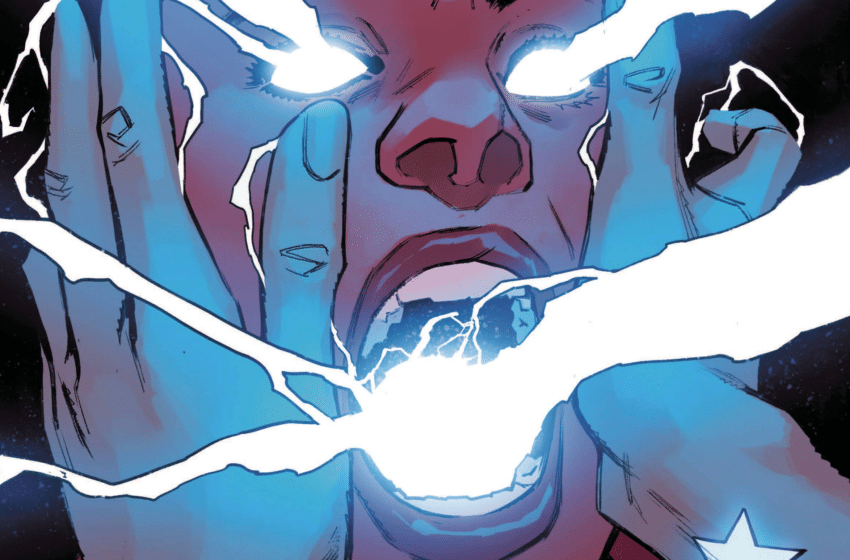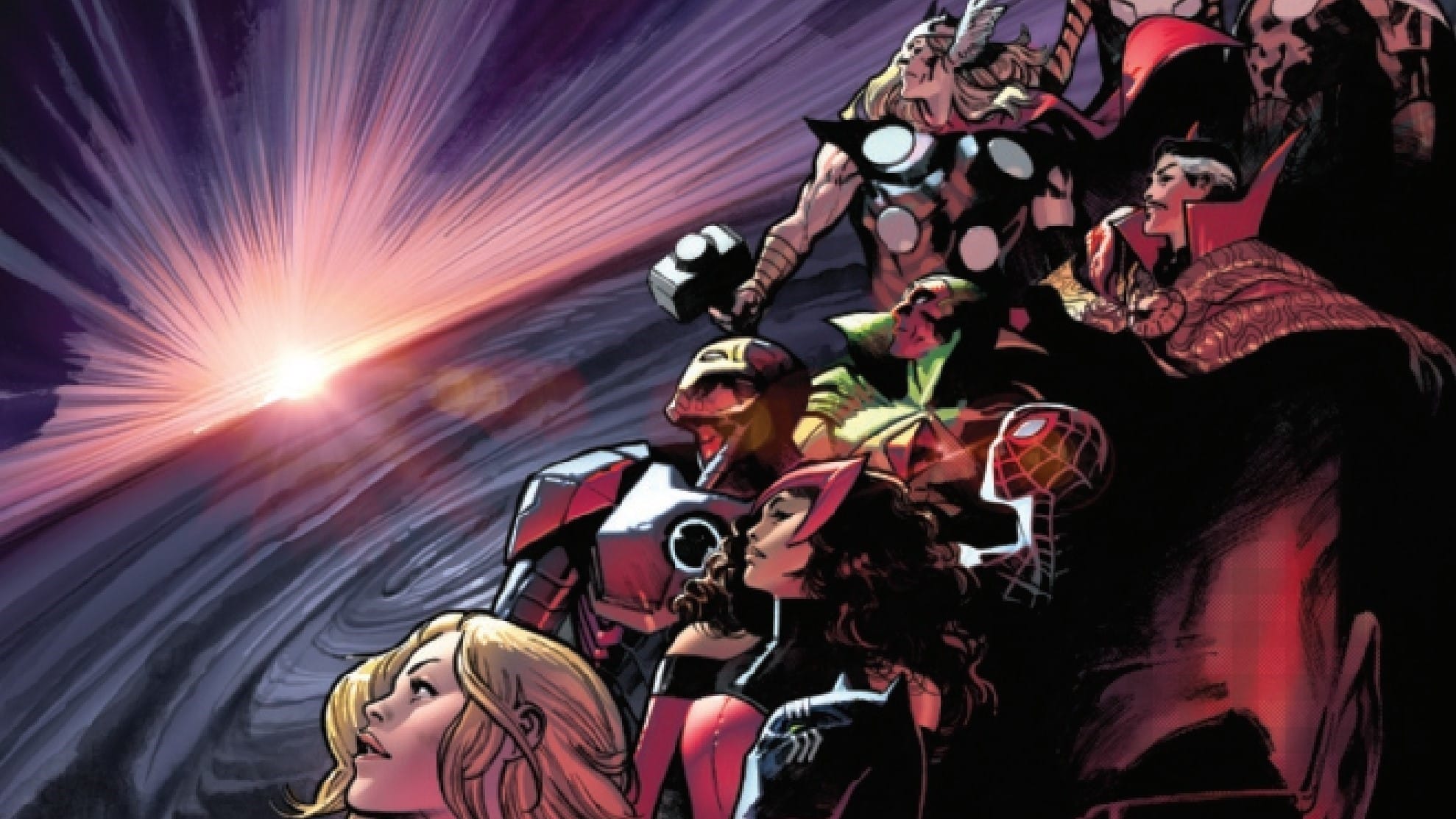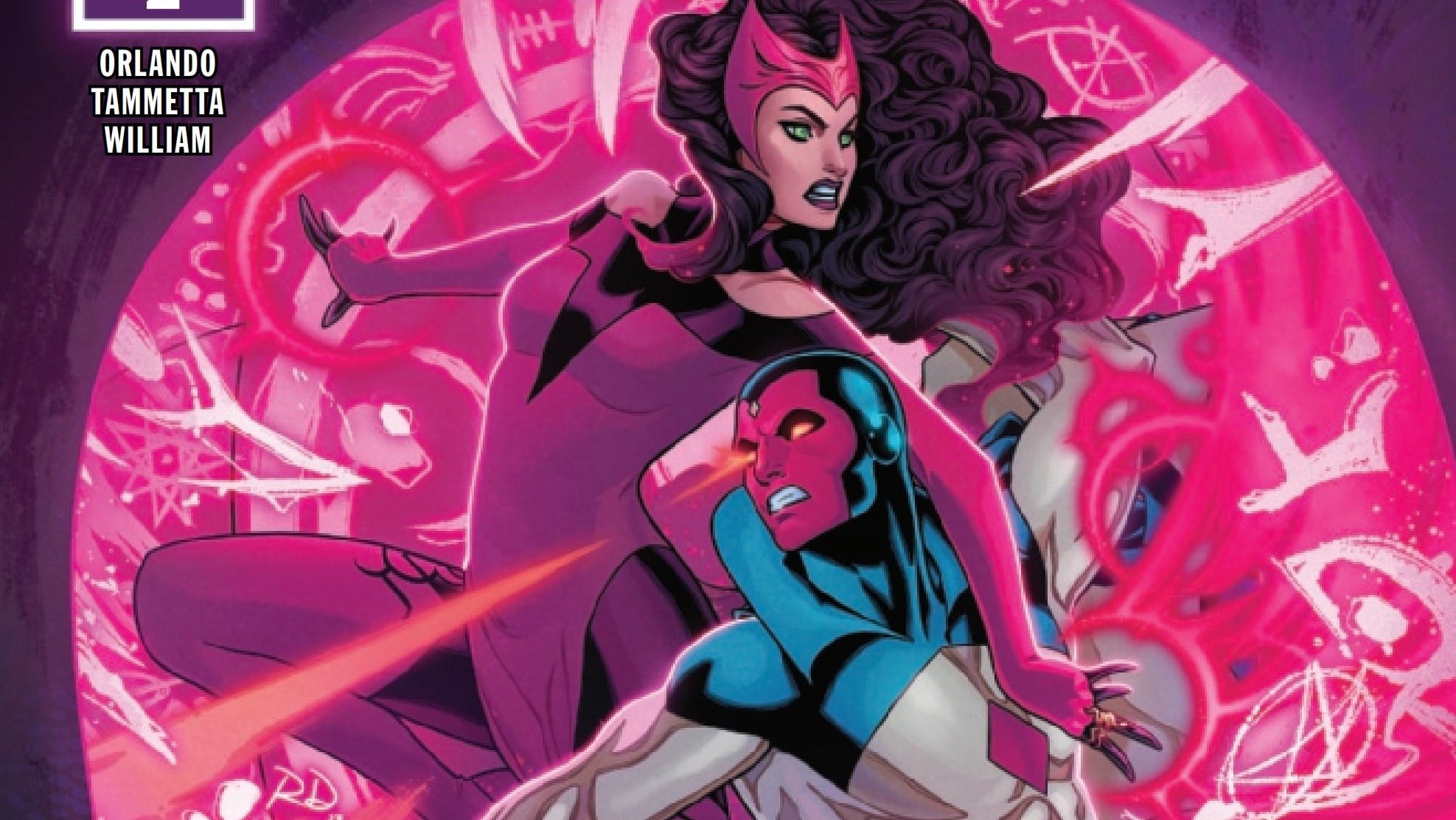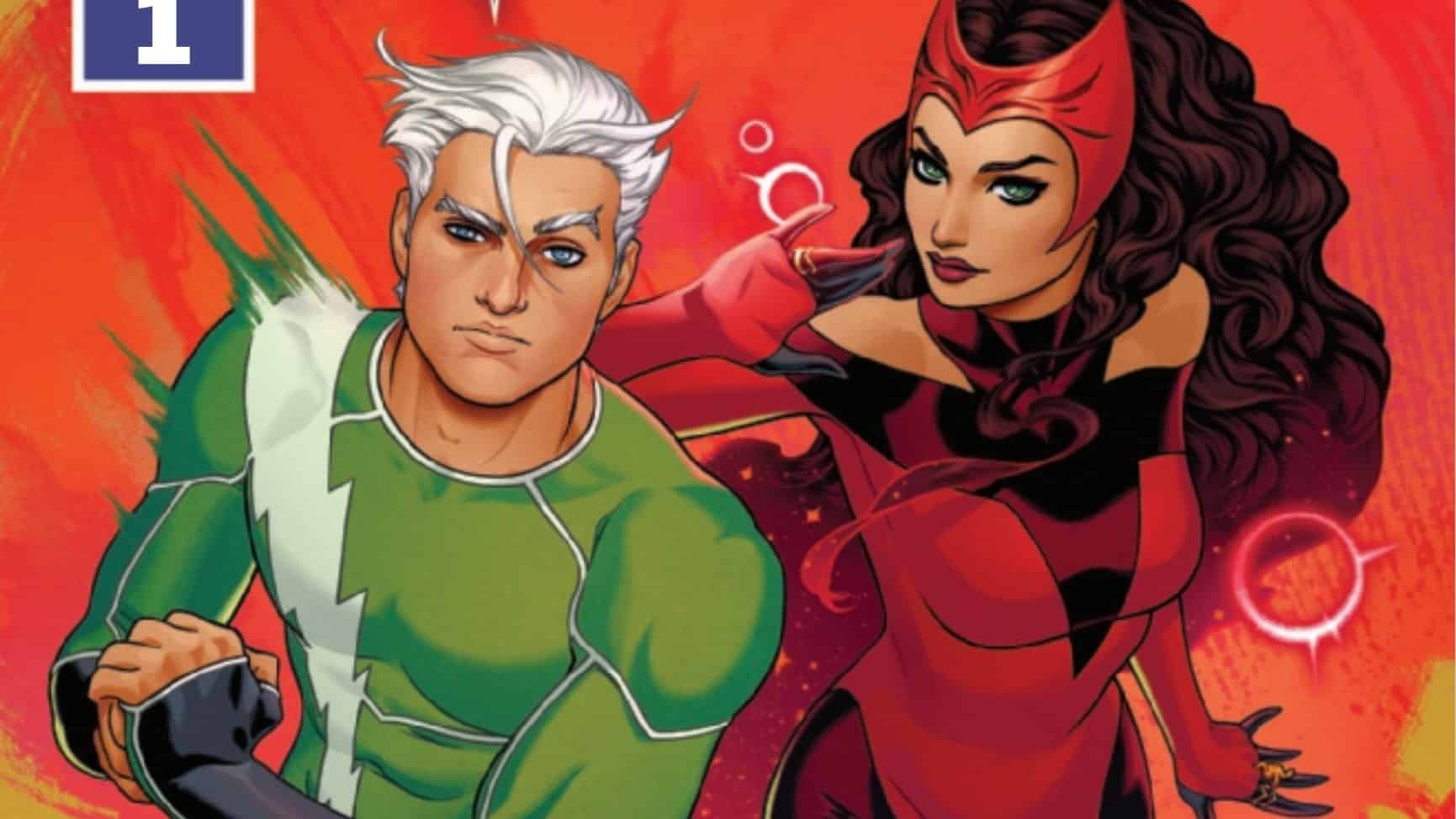Ex-Young Avenger, West Coast Avenger, interdimensional Puerto Rican, and super-strong, superconfident lesbian icon America Chavez, plagued by suddenly unreliable powers, nonetheless zipped back to New York City to save her adoptive family. Instead she’s been taken captive by… we’ll find out who in America Chavez: Made in the USA 3, written by Kalinda Vazquez, pencils and inks by Carlos Gómez, colors by Jesus Aburtov, letters by VC’s Travis Lanham.
I don’t know what I expected from the pivot to what is likely a five-issue story, but it sure wasn’t this beautiful and disturbing mostly-retcon—or fake-retcon—installment. Issues one and two focused on the Santanas, who raised America and cemented her Boricuan identity during her years in NYC. Here we meet America’s kidnapper, a young woman near her age, with long, tight braids and a yellow rainslicker, who claims to be America’s bio-sister. She captured America (yes, there are manacles) in order to show her the truth about their origins.
America supposedly came to Earth from the Utopian Parallel, a dimension both her mothers died to save. The dimension is real: we’ve been there in prior America stories—there’s even a university with its own dimensional address, which our America has attended unless the Gabby Rivera America series is somehow not canon; the series also gave her a luchador grandmother.
But the Utopian Parallel origin story, according to this mysterious nameless sister, is a coverup, perpetrated by parties unnamed, or perhaps by America’s traumatized brain. America really acquired her powers on Earth, when her moms—both of whom were doctors—agreed to have her undergo experimental treatments on a private island, designed to cure the very scary and very imaginary Edges Syndrome. These treatments took advantage of America’s then-asymptomatic younger sister, the same one who’s captured her now. The treatments—or the trauma they created—also erased America’s memory. And they’re starting to wear off: that’s why America’s powers have become a sometime thing.
Gómez’s sharp island scenes– beautiful, temperate, leafy, Atlantic– sure make the flashbacks look real: his glossy, solid people remind me of Jan Bazaldua’s (that’s praise). We see it, but America doesn’t believe it. Do we have here a breathtakingly comprehensive and reliable retcon? Or do we have, instead, an issue-long illustration for the antagonist’s lies, showing scenes that never took place? We don’t know which and neither does America, though her self-confident, proud, punch-first, even bull-headed persona points her strongly towards the latter. She just won’t believe her sister, or “sister,” and she certainly won’t accept her sister’s repeated offer of sodium pentothal in a syringe, supposedly meant to restore America’s repressed memories. (Childhood trauma is all too real, but does it lead to repressed memories in real people? The debate continues.)
I wouldn’t trust anyone who took me captive and asked to inject me with so-called truth serum (which in real life just makes people super-suggestible). And I certainly wouldn’t trust anyone who arranged the mad-scientist reveal on the issue’s final page. Kalinda Vazquez’s plot leaves an unpleasant fork in the road for America, and for the series’ readers, and for the rest of America’s fans: either the whole Utopian Parallel thing is horse pucky, even though it’s been foundational for the character up to this point, or we’ve just read a Usual Suspects-style full-color on-panel confabulation. The character herself, meanwhile—who ought to have the superior, optimistic, combative personality of a Carol Danvers, but with her own denim-jacket star-style, and Puerto Rican, and gay—remains essentially reactive. We root for her but we still don’t know what, other than escaping from captivity, she wants to do. On the other hand, everything around her looks great, including her disarmingly regular villain. And America’s name, as always, makes the dialogue easier: “Aren’t you concerned about America’s survival?” the island’s mad scientist asks her moms. “Bottom line: America’s condition is deteriorating rapidly.” I hope she can get better soon.
Stephanie Burt is Professor of English at Harvard. Her podcast about superhero role playing games is Team-Up Moves, with Fiona Hopkins; her latest book of poems is We Are Mermaids. Her nose still hurts from that thing with the gate.






